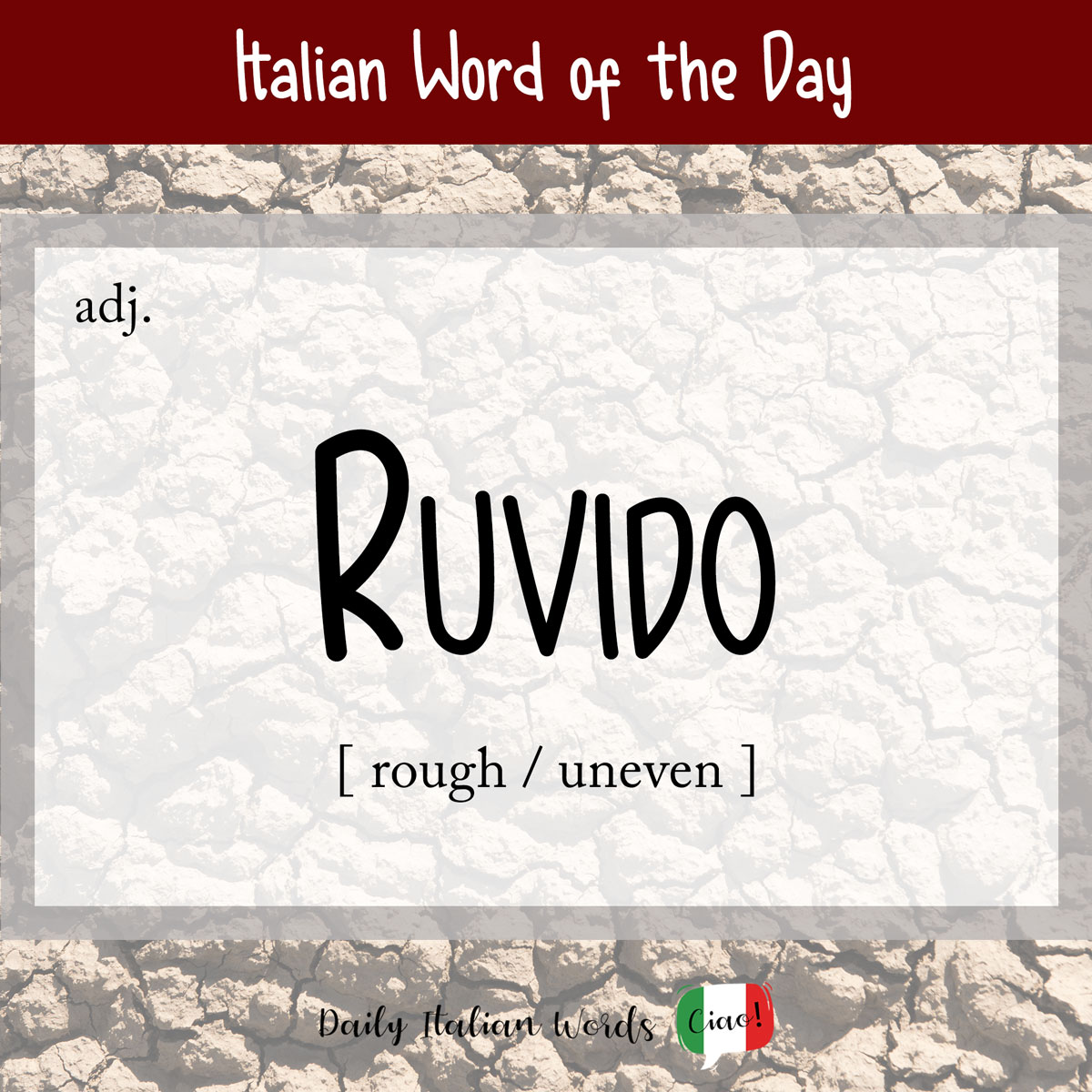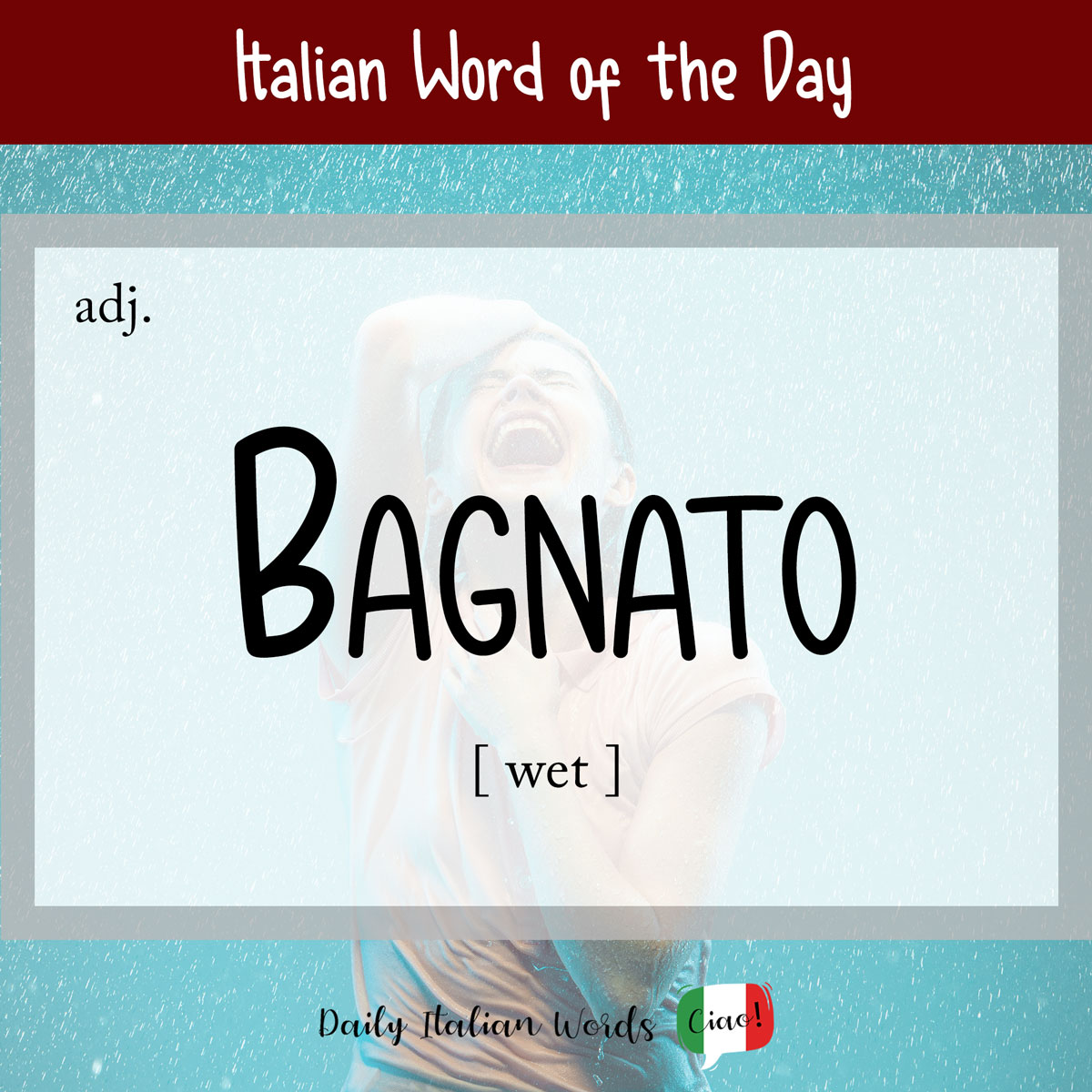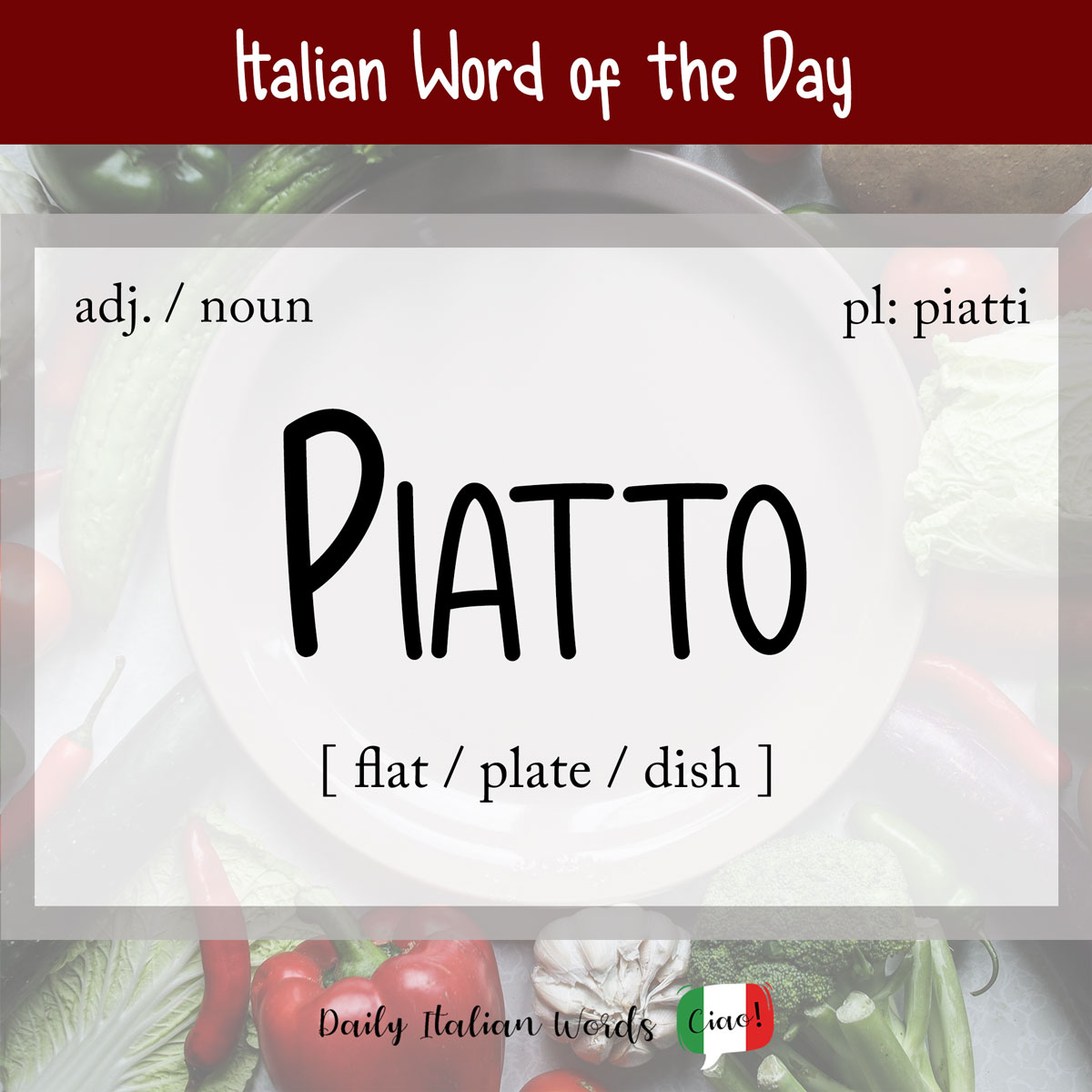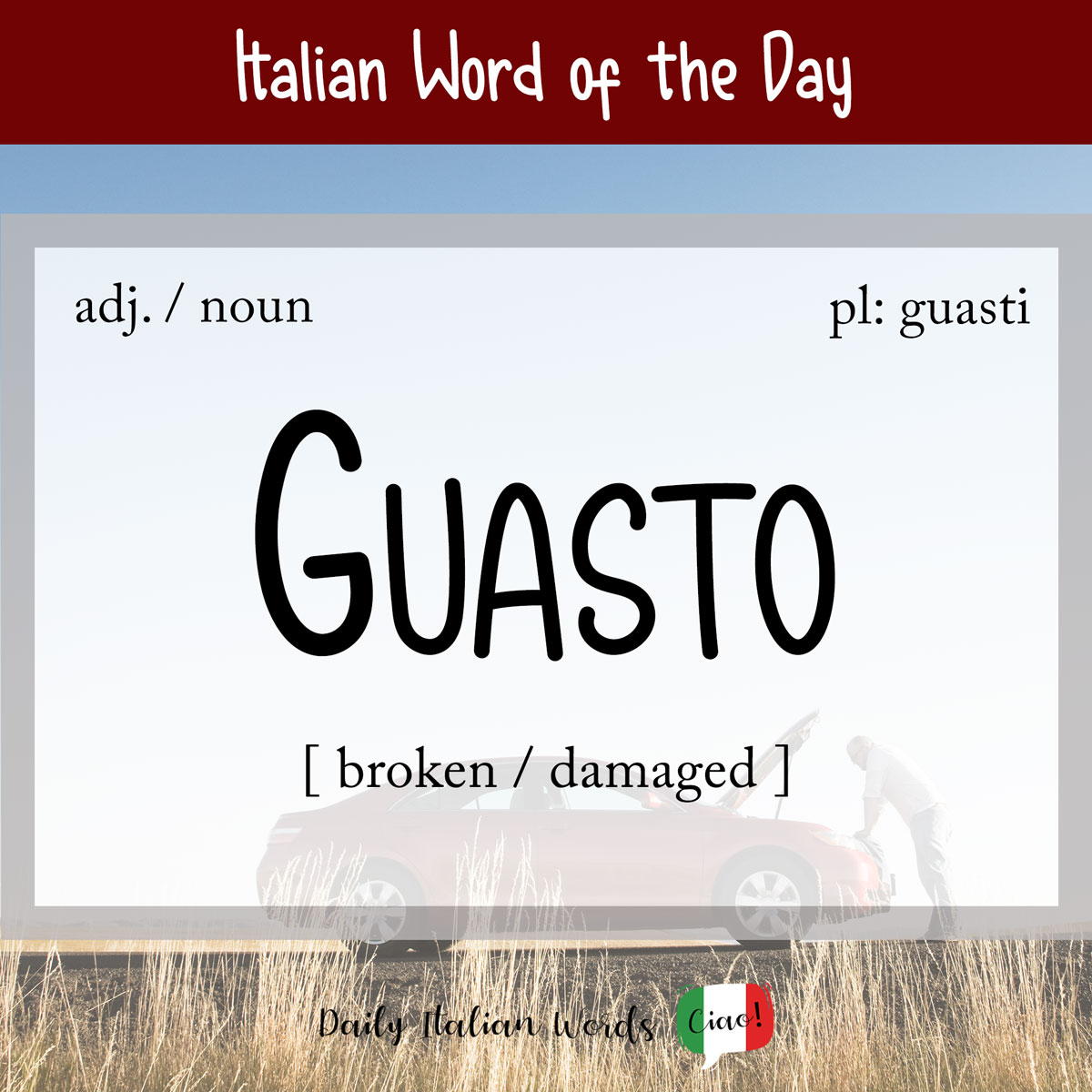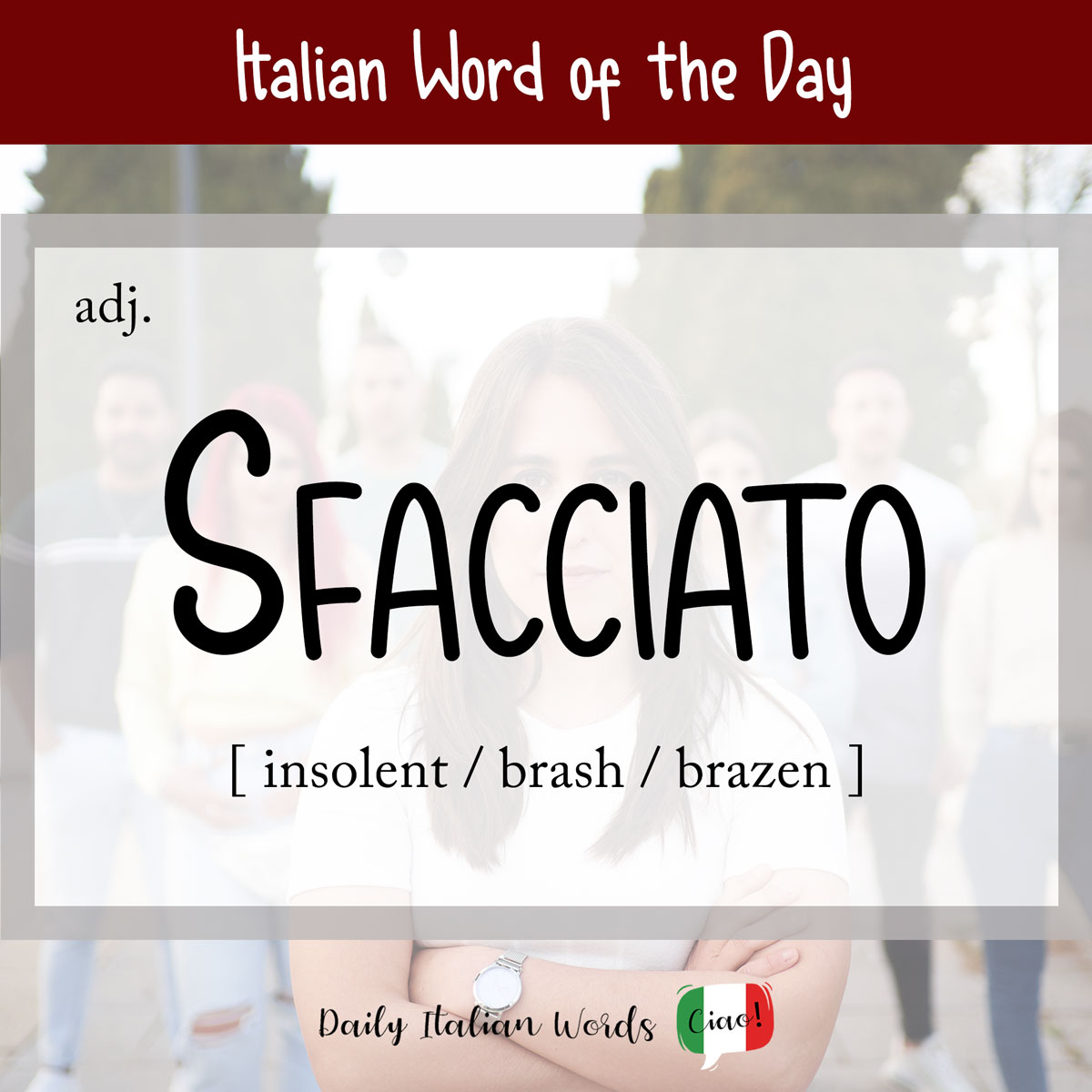Italian Word of the Day: Ruvido (rough / uneven)
If you want to describe a surface that is rough or uneven rather than smooth (liscio), you can use the adjective ruvido. ruvido rough / uneven Since ruvido is an adjective, it has masculine, feminine and plural forms: The word is derived from the Vulgar Latin *ru(g)ĭdum, is a derivative of ruga, meaning wrinkle. Questo …

